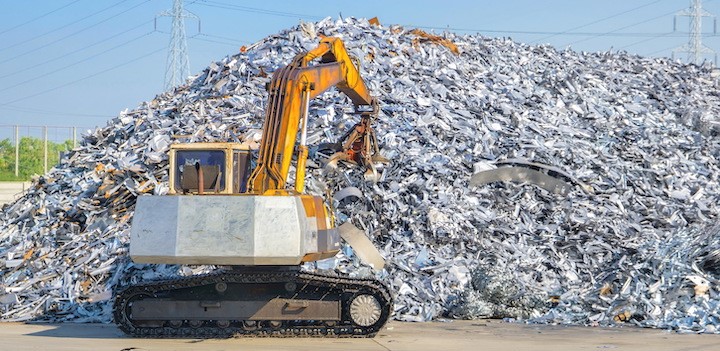Councils will face further uncertainty in receiving extended producer responsibility (EPR) payments and in managing long-term waste contracts after the government deferred its EPR scheme for a year from October 2024 to 2025.
EPR rules would ensure packaging producers pay for the cost of recycling their packaging, and would largely shift the financial responsibility for dealing with waste from councils to the companies producing it.
But the Department for Environment, Food and Rural Affairs (DEFRA) said that “in light of the pressure facing consumers and businesses in the current economic context” and following “extensive engagement with industry”, it had decided to delay the scheme by a year.
DEFRA stated: “This decision to defer producer payments has been taken jointly with the devolved administrations and will provide industry, local authorities and waste management companies with more time to prepare to ensure the success of the scheme, helping make sure it is best designed to deliver on long term recycling goals while supporting households with the immediate challenge of high prices caused by inflation.”
The Local Government Association (LGA) said the delay meant it was now “crucial that government, industry and councils all put the foot to the floor in planning full implementation from 2025, and that government extend EPR to cover other material types beyond just packaging”.
Darren Rodwell, environment spokesperson for the LGA, said: “The decision to delay the implementation of EPR is disappointing for councils. It means we lose crucial momentum on ambitions to clean up our environment, while council taxpayers continue to pay for dealing with unnecessary and unrecyclable waste.
15th Annual LATIF & FDs’ Summit – 19 September 2023
250+ Delegates from Local Government & Investment
“Good packaging can be important for keeping products fresh and intact. But everybody can see the unnecessary waste, across our shop shelves, delivered to our homes, and into our bins. For instance the UK gets through six billion bags of crisps a year, but there is usually more packet than crisps, they are nearly impossible to recycle, and that is just one item.
“The delay means there will be another year of excessive packaging impacting our environment and climate change, and further uncertainties and delays causing councils real difficulties in managing their long-term waste contracts.”
The District Councils Network (DCN) said councils had “already had to put off decisions on how to invest in services due to the government failing to respond for two years to its consultation on waste consistency”.
Sarah Nelmes, DCN environment spokesperson, said: “Councils need clarity on waste policy and we need it urgently. This latest delay adds to the uncertainty which is hampering us from improving services so that recycling rates increase, we provide even greater value to local taxpayers and we move towards net zero.
“The delay in implementing EPR must not be allowed to undermine the commitment, set out in the Environment Act, that those who produce waste should fund councils’ services on an ongoing basis. Councils need clear, realistic timelines to know when this vital policy is going to be implemented.
“While councils are, of course, seeking to increase recycling rates, there has been far too little attention paid to reducing the overall amount of waste produced – and the incentives provided by EPR are an essential tool to bring this about.
“If there is a silver lining on this latest delay, it does at least provide an opportunity to sort out some of the questions that remain over how EPR funding will be distributed in a way that is fair to all councils, whether in rural or urban settings.
“We want to build the waste services which serve the unique needs of each local area but we are putting off decisions in the expectation that the government will impose new requirements on us. The ongoing uncertainty means many councils have paused on replacing their older vehicles and cannot take decisions on how to move waste services towards net zero.”
—————
FREE weekly newsletters
Subscribe to Room151 Newsletters
Follow us on LinkedIn
Follow us here
Monthly Online Treasury Briefing
Sign up here with a .gov.uk email address
Room151 Webinars
Visit the Room151 channel












